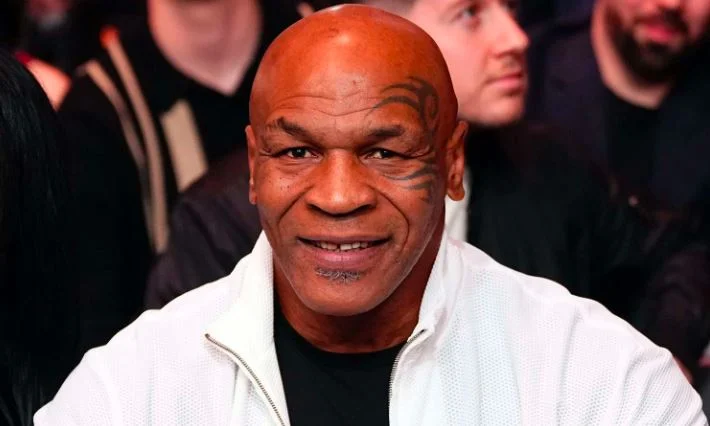
Mike Tyson Ethnicity and Parents Nationality
Mike Tyson is widely recognized as one of the most iconic figures in boxing history, known for his ferocity in the ring, his incredible power, and his tumultuous career. Tyson’s life outside of the boxing ring has garnered much attention, not just due to his successes, but also his personal struggles and complex background. Understanding Tyson’s ethnicity and the nationality of his parents provides valuable insight into his identity and the influences that shaped him both personally and professionally.
Mike Tyson Ethnicity and Cultural Background
| Category | Athletes |
|---|---|
| Full Name | Mike Tyson. |
| Birthdate | June 30, 1966. |
| Birthplace | Fort Greene, Brooklyn, New York City,, United States. |
| Ethnicity | African-American and Irish descent. |
| Father Ethnicity | African-American and Irish descent. |
| Mother Ethnicity | African-American and Irish descent. |
Mike Tyson’s cultural identity is deeply rooted in a blend of African-American and Irish ancestry. This mixed heritage played a significant role in shaping Tyson’s early life, sense of identity, and even his approach to challenges both in the boxing ring and in his personal life. Tyson’s ethnicity encompasses a rich history of resilience, adversity, and strength, influenced by both his African-American and Irish roots.
Mike Tyson African-American Heritage
Mike Tyson identifies strongly with his African-American heritage. Born on June 30, 1966, in Brooklyn, New York, Tyson grew up in an African-American community and faced many hardships. His mother, Lorna Tyson, played a significant role in shaping his understanding of his cultural background. Growing up in a predominantly Black neighborhood in Brooklyn, Tyson encountered the complexities of African-American culture, which shaped his worldview.
This cultural influence was particularly important as Tyson’s father, James Tyson, was absent for most of his life. With no father figure around, Tyson’s primary role models and support systems were members of the African-American community, including his mother. The influence of his African-American heritage helped Tyson cultivate a sense of toughness, resilience, and determination, qualities that later defined his success as a boxer. He would draw on these experiences of struggle and survival when facing the pressures of professional boxing.
Mike Tyson The Role of Irish Ancestry
People widely know Tyson’s African-American roots, but his family background also includes Irish ancestry. His mother, Lorna Tyson, is believed to have Irish heritage, though others highlight this part of his family history less often. This Irish background contributes to Tyson’s complex cultural identity.
Though Tyson’s mixed-race heritage is not always the focal point of discussions surrounding him, it has been an important aspect of his identity. His Irish ancestry adds depth to his understanding of family and identity, and it is likely that these cultural influences helped to shape his worldview in ways that go beyond the limitations of a singular racial or ethnic background.
Mike Tyson Cultural Influence and Its Impact on Tyson Identity
Tyson’s multicultural background has given him a unique position in the public eye. His upbringing in the tough neighborhoods of Brooklyn, surrounded by the African-American community, was pivotal in shaping his early experiences. However, his Irish roots, while more subtle, contributed to his broader sense of self. The duality of his heritage allowed Tyson to navigate various spaces within American society, giving him a sense of pride in both parts of his ancestry.
Tyson’s complex cultural identity influenced how the public perceived him, adding layers to his character. In the world of sports, Tyson’s fierce persona in the ring stemmed partly from the blend of resilience and pride he drew from his African-American background. At the same time, his Irish heritage may have added an element of tenacity and determination, helping him to rise above the challenges in his personal life.
Mike Tyson Influence of Cultural Background on his Personal and Professional Life
Tyson’s cultural background, shaped by both African-American and Irish ancestry, is reflected in his character and career. The African-American experience, steeped in history and struggle, gave Tyson a unique perspective on overcoming obstacles. As an athlete, he was able to channel the strength of his heritage into his work ethic and determination. His mother’s role in raising him as a single parent in a tough neighborhood also taught him resilience and perseverance, traits that would serve him well in the boxing ring.
Additionally, Tyson’s Irish roots may have reinforced his sense of individuality and fighting spirit. The influence of both cultures combined to shape his tough yet complex persona, allowing Tyson to become a global icon who transcended racial and cultural boundaries in the sports world.
Mike Tyson Siblings
Mike Tyson, born into a complex family situation, has often spoken about his difficult childhood and the challenges he faced growing up in Brooklyn, New York. Raised by his mother, Lorna Tyson, after his father left the family, Tyson was part of a large and often unstable family structure. His siblings, like Tyson, were shaped by the tough environment of their upbringing, and their roles in his life have been significant, though not always in the spotlight.
Mike Tyson Siblings and Family Dynamics
Mike Tyson has several siblings, but public sources do not always clearly define the exact number or details of each sibling’s life. Tyson has mentioned having both brothers and sisters, but many aspects of his family life remain private. His siblings supported him early on, though they often complicated their relationships due to the difficulties they all faced growing up in poverty.
Tyson has mentioned his older brother, Rodney Tyson, in various interviews, though Rodney has kept a relatively private life. Mike Tyson has said that his older brother was a guiding figure in his early years, helping him navigate life in a rough neighborhood. However, their paths diverged, and Rodney did not achieve the same level of public fame as Mike.
Mike Tyson Half-Siblings and Extended Family
In addition to his immediate siblings, Mike Tyson also has half-siblings from his father’s side. James Tyson, Tyson’s estranged father, had other children, but little is known about them. Tyson has sometimes alluded to the lack of a strong familial bond with his father and his paternal relatives, as his father was largely absent from his life.
Tyson’s relationship with his siblings appears to have been shaped by the chaotic nature of their family life. The absence of a stable father figure and the harsh conditions of their environment may have contributed to their struggles, but it also brought them closer together in some ways. Tyson has mentioned that his mother, Lorna, was a critical influence on his early life and that his siblings were part of a family unit that had to support one another.
Mike Tyson Personal Reflections on Siblings
Tyson has occasionally reflected on his relationship with his siblings, speaking about how growing up with them in the tough streets of Brooklyn created a bond of shared experience. However, Tyson’s rise to fame, particularly in the boxing world, often separated him from his siblings, as his career became more demanding and his life more public. Tyson has discussed the challenges of balancing family relationships with his obligations as a world champion boxer, and it seems that some of his family ties, particularly with his siblings, strained over time.
In his autobiography and interviews, Tyson has occasionally acknowledged that his siblings played a role in his early life, but as he became more famous, their individual stories became less intertwined with his public persona. Despite the turbulence, Tyson’s siblings were a part of the complex fabric of his upbringing, and their presence in his early years undoubtedly contributed to the person he became.
Mike Tyson Professional Career
Mike Tyson’s professional career in boxing is one of the most remarkable in sports history. Known for his unparalleled speed, power, and ferocity in the ring, Tyson’s rise to dominance was meteoric, making him the youngest heavyweight champion in boxing history. However, his career was also marked by controversy, personal struggles, and dramatic comebacks. Tyson’s journey in the boxing world reflects both his extraordinary talent and the turbulence that accompanied his rise and fall.
Mike Tyson Early Professional Career
Tyson turned professional at the age of 18 in 1985, after a successful amateur career. Under the guidance of trainer Cus D’Amato, Tyson began to rapidly climb through the ranks, impressing both fans and critics alike with his devastating knockout power and aggressive fighting style. Tyson’s early professional career was a blur of quick victories. He won his first 19 professional fights, 16 of which were by knockout, earning him a reputation as one of the most dangerous fighters in the world.
In 1986, Tyson’s dream became a reality when he fought Trevor Berbick for the WBC Heavyweight title. At just 20 years old, Tyson knocked out Berbick in the second round, making him the youngest heavyweight champion in boxing history. Tyson’s victory catapulted him into the global spotlight and solidified his place among the sport’s elite. His explosive style, combined with his fierce personality, made him both a feared opponent and a media sensation.
Mike Tyson Dominance and Unification of Titles
After becoming the WBC Heavyweight Champion, Tyson’s dominance in the ring continued. He quickly became the most feared man in boxing, known for his aggressive approach, swarming his opponents with relentless punches. Tyson defeated several notable contenders, including James “Quick” Tillis, Mitch Green, and Reggie Gross, all by knockout.
Tyson’s reign continued as he went on to win the WBA and IBF titles in 1987, making him the undisputed heavyweight champion. In a thrilling matchup with Michael Spinks in 1988, Tyson solidified his status as the king of boxing by knocking out Spinks in just 91 seconds. Tyson earned widespread recognition as one of the best fighters to ever step into the ring, and his knockout power made him nearly unbeatable during this period. He rapidly secured victories and finished fights early, making himself a force to be reckoned with in professional boxing.
Mike Tyson Struggles and Downfall
Despite his success, Tyson’s personal life began to unravel, leading to issues both inside and outside the ring. In 1990, Tyson suffered one of the biggest upsets in boxing history when he lost to Buster Douglas in Tokyo. Douglas, a 42-to-1 underdog, managed to withstand Tyson’s early onslaught and knocked Tyson out in the 10th round, ending Tyson’s undefeated streak. This loss marked the beginning of a downward spiral for Tyson, as personal issues, including a troubled marriage and legal battles, began to take their toll.
Tyson’s struggles continued in the 1990s. In 1992, he was convicted of rape and sentenced to six years in prison, a sentence that would further derail his career. Tyson’s time in prison kept him out of the ring for nearly three years, and upon his release, his skills were not as sharp as they once were. Despite his return to boxing, Tyson was never able to regain his former dominance.
Mike Tyson Comebacks and Later Career
Tyson fought throughout the 1990s and early 2000s, but personal issues and inconsistency marked his later career. He scored notable victories, including a win over Frank Bruno to reclaim the WBC Heavyweight title in 1996 and a victory against Bruce Seldon that same year to capture the WBA title. However, controversies also marred Tyson’s career, including the infamous bite fight against Evander Holyfield in 1997. In this bout, Tyson bit off part of Holyfield’s ear, which led to his disqualification and a lengthy suspension from boxing.
Tyson’s comeback efforts throughout the 2000s were met with mixed results. He continued to fight at a high level, even securing a notable win over Lennox Lewis in 2002, but his reign at the top was no longer as secure as it had been in his prime. Tyson eventually announced his retirement in 2005 after suffering a string of defeats, signaling the end of a legendary, albeit tumultuous, career.
Mike Tyson Legacy and Impact
Despite the ups and downs, Mike Tyson remains one of the most influential figures in the history of boxing. His raw power, lightning-fast reflexes, and intimidating presence made him a cultural icon. Tyson revolutionized the heavyweight division with his aggressive, no-holds-barred style of boxing. His persona, both in and out of the ring, captured the public’s imagination and made him a symbol of fear and dominance in the sport.
Tyson established a legacy as one of the greatest heavyweights in boxing history, despite his career’s controversies. His knockout victories, his reign as the undisputed heavyweight champion, and his rapid rise to fame are what fans will remember him for. Though his career ended in frustration and loss, Tyson’s impact on boxing and the sports world is enduring.
Mike Tyson Parents Nationality
Mike Tyson’s parents were both born in the United States, making Tyson an American by nationality. His mother, Lorna Tyson, hailed from the U.S. and was an essential figure in his early life. Not much is known about Tyson’s father’s side of the family, but his father, James Tyson, was also American. While his background and heritage remain elusive, James left the family when Mike was very young and abandoned Lorna to raise him alone in a tough Brooklyn neighborhood. Growing up in Brooklyn, Tyson’s strong African-American community shaped his environment and influenced his outlook on life and future aspirations. His roots in the U.S. became foundational, reinforcing his identity and fueling his determination to succeed.
Lorna Tyson’s influence on Mike’s life cannot be overstated. Despite facing financial hardship and dealing with the absence of her partner, she worked tirelessly to provide for Mike and his siblings. As a single mother, she became the primary source of emotional and moral support, guiding Tyson through his childhood struggles. Her support was crucial in fostering his interest in boxing, which would later become the pathway to his legendary career. Tyson’s resilience and his mother’s dedication were pivotal in his rise to fame, making his American nationality and the hardships of his upbringing central to his journey.
Conclusion
Mike Tyson’s ethnicity and the nationality of his parents have played a significant role in shaping the man he became, both personally and professionally. Born in Brooklyn, New York, to African-American parents, Tyson’s upbringing in a predominantly Black neighborhood influenced his cultural identity and the way he navigated the world. His strong African-American heritage has been a defining aspect of his personality, providing him with a deep sense of pride and resilience. The community’s values of strength, determination, and survival under challenging circumstances helped mold Tyson’s mindset, which would later propel him to boxing greatness. His mother gave him Irish roots, which further shaped his sense of self and broadened his cultural perspective, though his African-American heritage dominates his public persona.
Growing up in Brooklyn, Tyson faced poverty, crime, and violence, experiences that shaped his development. His ethnicity and cultural background were integral to his journey, as they helped him navigate personal struggles and fueled his rise to global stardom. Tyson’s American nationality, coupled with his multifaceted ethnic identity, played a major role in his success. His diverse heritage reflected his resilience and determination to succeed against all odds. His life story stands as a powerful example of how a blend of ethnic backgrounds can shape an individual’s identity and success, both inside and outside the ring.



